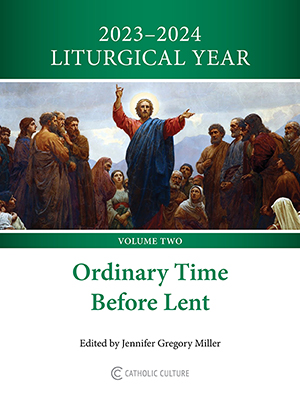Pope issues new norms for women's contemplative religious communities
July 22, 2016
Pope Francis has issued new rules for the governance of women's contemplative religious communities.
With the apostolic constitution Vultum Dei Quaerere, the Pope calls for a renewal of women's contemplative communities, listing a dozen key points that should guide those communities in revising their statutes. The Pope emphasizes the vital role that women's contemplative religious orders play in the life of the Church, noting that the women's orders have traditionally been larger than, and often set the tone for, men's contemplative orders. He writes:
Women’s contemplative life has always represented in the Church, and for the Church, her praying heart, a storehouse of grace and apostolic fruitfulness, and a visible witness to the mystery and rich variety of holiness.
In his apostolic constitution, the Pontiff lays heavy emphasis on the formation of new members for religious orders, on Eucharistic adoration, and on the prayerful reading of the Scriptures. He writes that every contemplative community should be involved in Eucharistic adoration and lectio divina.
Vultum Dei Quaerere includes a series of new canonical norms for the religious communities. The document asks these communities to await more detailed instructions from the Holy See-- presumably from the Congregation for Religious and, where applicable, the Congregation for Eastern Churches-- on how these new norms should be incorporated in the communities' own rules.
"Be beacons to those near to you and, above all, to those far away," the Pope exhorts women religious. "Be torches to guide men and women along their journey through the dark night of time. Be sentinels of the morning, heralding the dawn."
Among the new rules promulgated in the apostolic constitution are:
- a strict notice that communities should not recruit new members from other countries if their only reason for doing so is to make up for loss of members;
- a norm that all contemplative communities should begin by affiliating with a federation of similar communities-- with such federations based on either geographical proximity or similarity in spirit
- a provision that contemplative communities prove themselves to be viable and capable of self-governance-- and if they are not, the Congregation for Religious will intervene to ensure "the revitalizatino of the monastery, or to effect its closure."
For all current news, visit our News home page.
Further information:
- Vultum Dei quaerere: a post-Conciliar Apostolic Constitution (Vatican press office)
- Summary of the Apostolic Constitution Vultum Dei quaerere (Vatican press office)
- postolic Constitution Vultum Dei quaerere on women's contemplative life (Vatican press office)
All comments are moderated. To lighten our editing burden, only current donors are allowed to Sound Off. If you are a current donor, log in to see the comment form; otherwise please support our work, and Sound Off!








